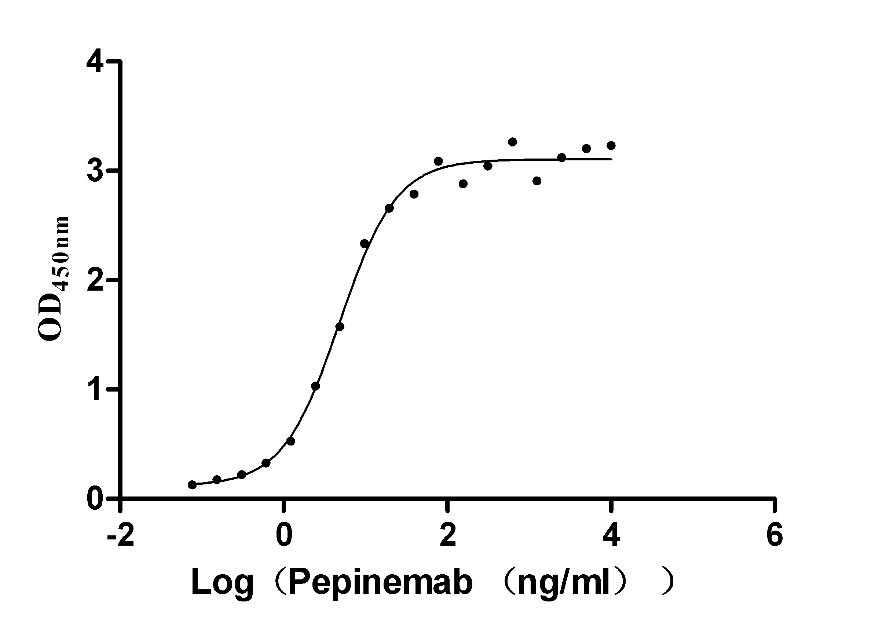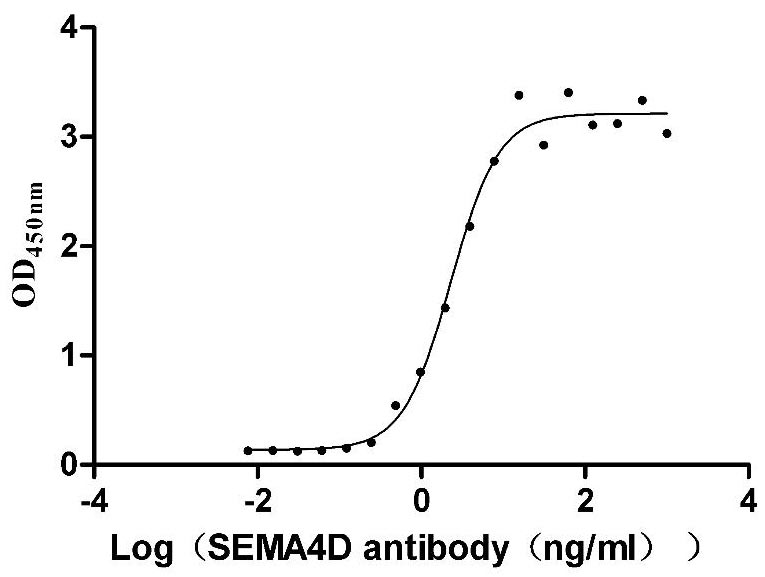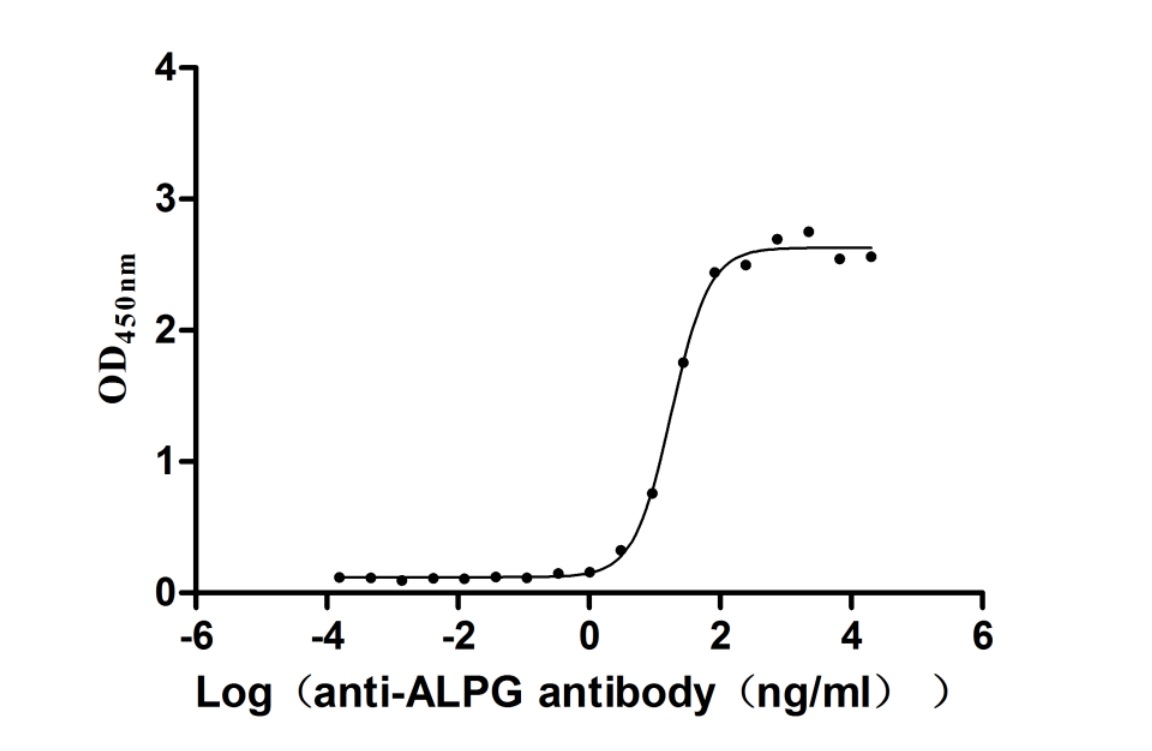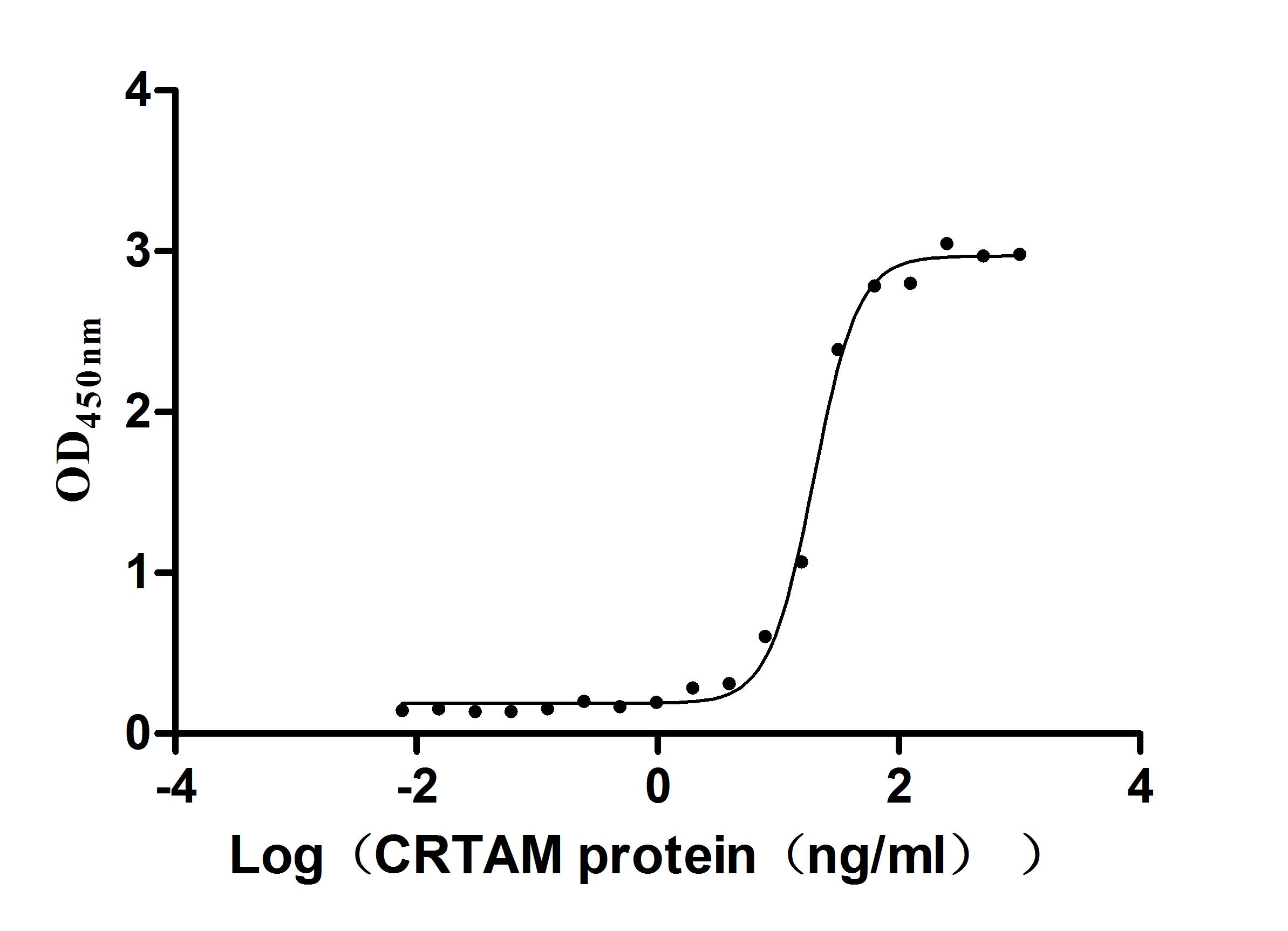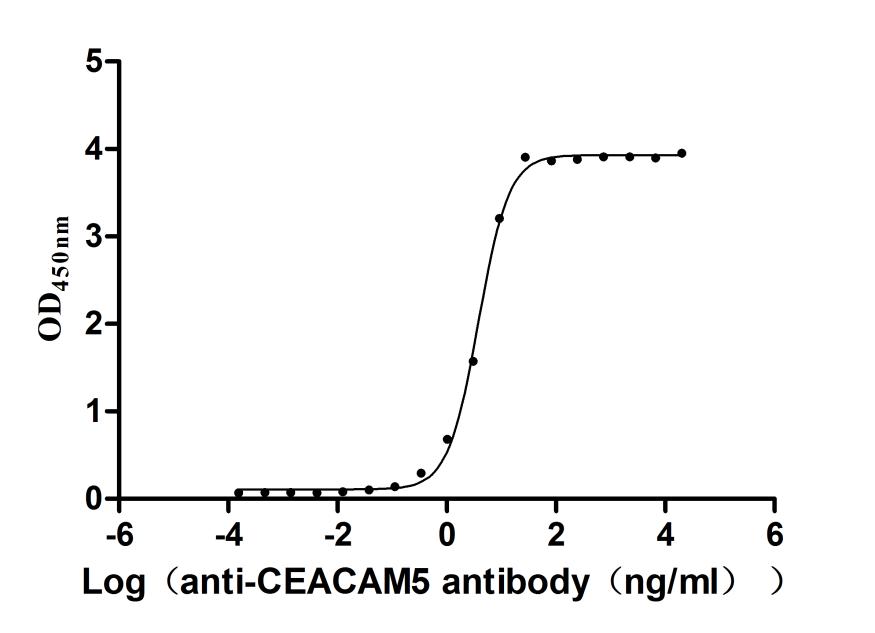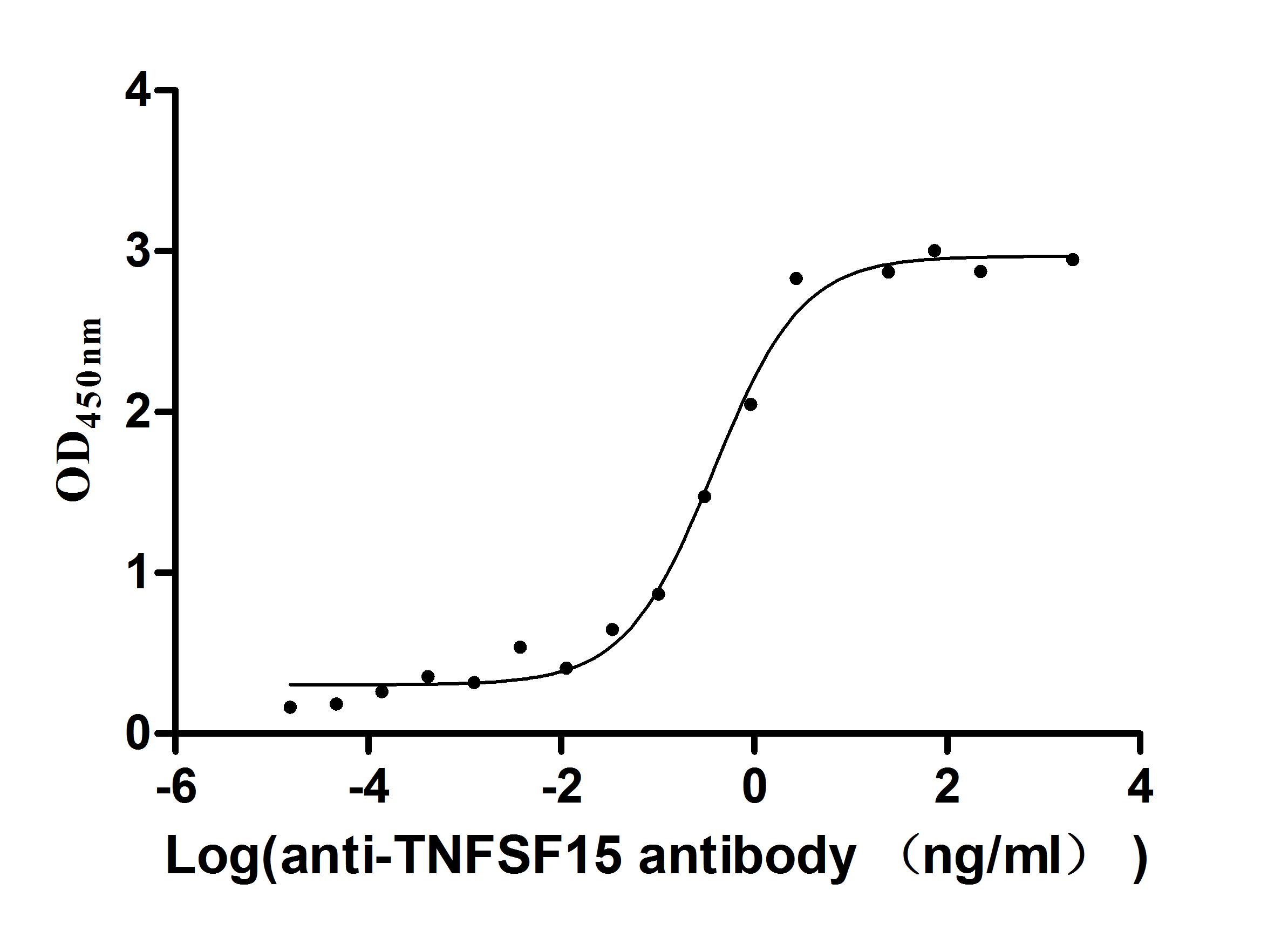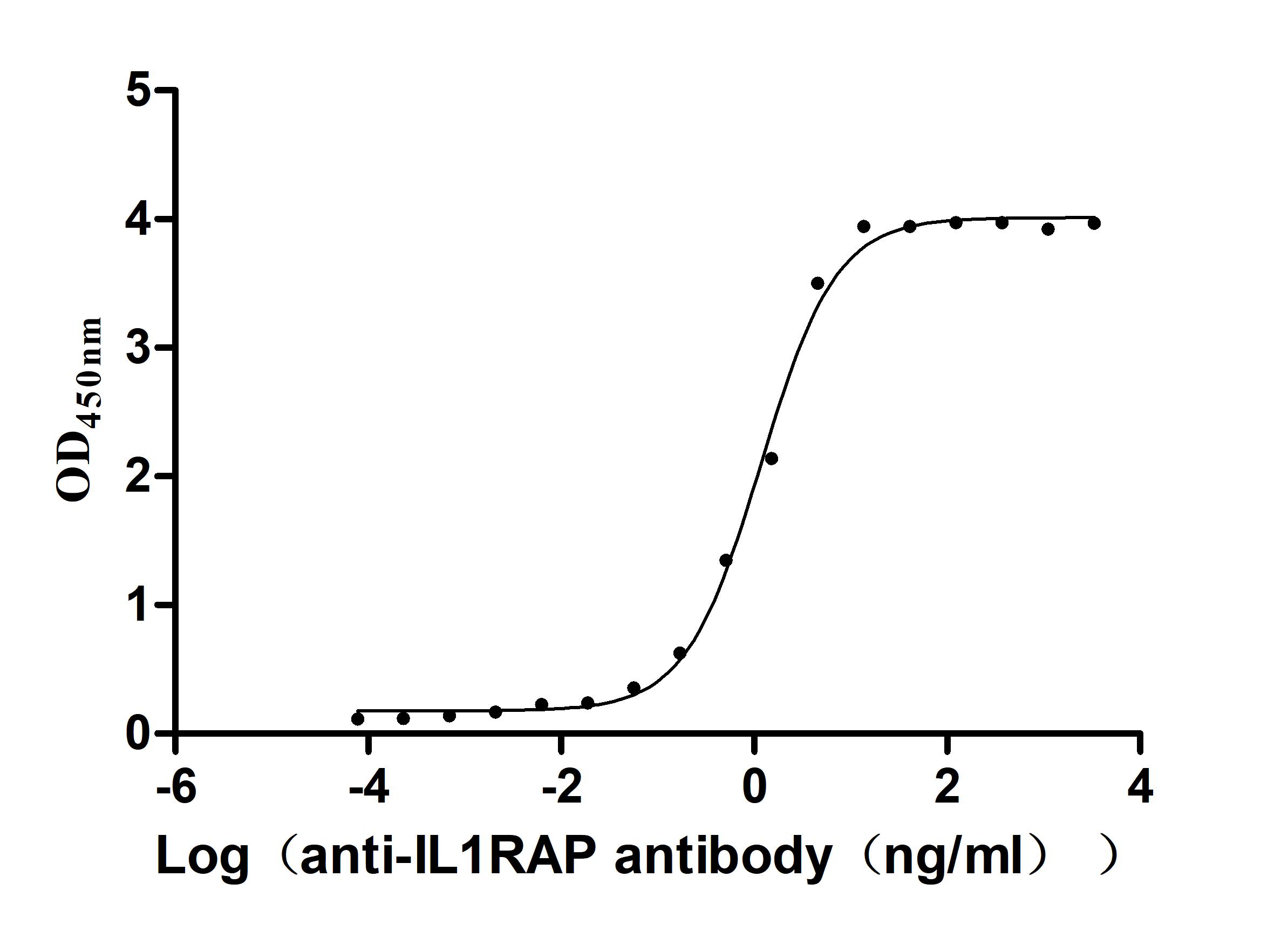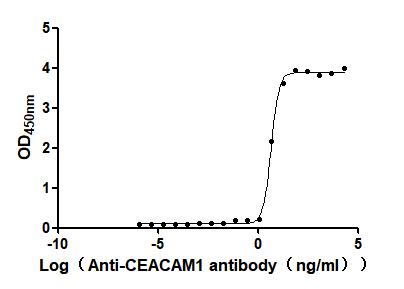Recombinant Mouse Mitogen-activated protein kinase kinase kinase 3 (Map3k3)
-
货号:CSB-YP013425MO
-
规格:
-
来源:Yeast
-
其他:
-
货号:CSB-EP013425MO
-
规格:
-
来源:E.coli
-
其他:
-
货号:CSB-EP013425MO-B
-
规格:
-
来源:E.coli
-
共轭:Avi-tag Biotinylated
E. coli biotin ligase (BirA) is highly specific in covalently attaching biotin to the 15 amino acid AviTag peptide. This recombinant protein was biotinylated in vivo by AviTag-BirA technology, which method is BriA catalyzes amide linkage between the biotin and the specific lysine of the AviTag.
-
其他:
-
货号:CSB-BP013425MO
-
规格:
-
来源:Baculovirus
-
其他:
-
货号:CSB-MP013425MO
-
规格:
-
来源:Mammalian cell
-
其他:
产品详情
-
纯度:>85% (SDS-PAGE)
-
基因名:
-
Uniprot No.:
-
别名:Map3k3; Mekk3Mitogen-activated protein kinase kinase kinase 3; EC 2.7.11.25; MAPK/ERK kinase kinase 3; MEK kinase 3; MEKK 3
-
种属:Mus musculus (Mouse)
-
蛋白长度:full length protein
-
表达区域:1-626
-
氨基酸序列MDEQEALDSI MKDLVALQMS RRTRLSGYET MKNKDTGHPN RQSDVRIKFE HNGERRIIAF SRPVRYEDVE HKVTTVFGQP LDLHYMNNEL SILLKNQDDL DKAIDILDRS SSMKSLRILL LSQDRNHTSS SPHSGVSRQV RIKPSQSAGD INTIYQAPEP RSRHLSVSSQ NPGRSSPPPG YVPERQQHIA RQGSYTSINS EGEFIPETSE QCMLDPLSSA ENSLSGSCQS LDRSADSPSF RKSQMSRARS FPDNRKECSD RETQLYDKGV KGGTYPRRYH VSVHHKDYND GRRTFPRIRR HQGNLFTLVP SSRSLSTNGE NMGVAVQYLD PRGRLRSADS ENALTVQERN VPTKSPSAPI NWRRGKLLGQ GAFGRVYLCY DVDTGRELAS KQVQFDPDSP ETSKEVSALE CEIQLLKNLQ HERIVQYYGC LRDRAEKILT IFMEYMPGGS VKDQLKAYGA LTESVTRKYT RQILEGMSYL HSNMIVHRDI KGANILRDSA GNVKLGDFGA SKRLQTICMS GTGIRSVTGT PYWMSPEVIS GEGYGRKADV WSLGCTVVEM LTEKPPWAEY EAMAAIFKIA TQPTNPQLPS HISEHGRDFL RRIFVEARQR PSAEELLTHH FAQLVY
-
蛋白标签:Tag type will be determined during the manufacturing process.
The tag type will be determined during production process. If you have specified tag type, please tell us and we will develop the specified tag preferentially. -
产品提供形式:Lyophilized powder
Note: We will preferentially ship the format that we have in stock, however, if you have any special requirement for the format, please remark your requirement when placing the order, we will prepare according to your demand. -
复溶:We recommend that this vial be briefly centrifuged prior to opening to bring the contents to the bottom. Please reconstitute protein in deionized sterile water to a concentration of 0.1-1.0 mg/mL.We recommend to add 5-50% of glycerol (final concentration) and aliquot for long-term storage at -20℃/-80℃. Our default final concentration of glycerol is 50%. Customers could use it as reference.
-
储存条件:Store at -20°C/-80°C upon receipt, aliquoting is necessary for mutiple use. Avoid repeated freeze-thaw cycles.
-
保质期:The shelf life is related to many factors, storage state, buffer ingredients, storage temperature and the stability of the protein itself.
Generally, the shelf life of liquid form is 6 months at -20°C/-80°C. The shelf life of lyophilized form is 12 months at -20°C/-80°C. -
货期:Delivery time may differ from different purchasing way or location, please kindly consult your local distributors for specific delivery time.Note: All of our proteins are default shipped with normal blue ice packs, if you request to ship with dry ice, please communicate with us in advance and extra fees will be charged.
-
注意事项:Repeated freezing and thawing is not recommended. Store working aliquots at 4°C for up to one week.
-
Datasheet :Please contact us to get it.
靶点详情
-
功能:Component of a protein kinase signal transduction cascade. Mediates activation of the NF-kappa-B, AP1 and DDIT3 transcriptional regulators.
-
基因功能参考文献:
- MiR-188 regulated MAP3K3 expression in bone marrow cells.MAP3K3 is involved in miR-188-induced promotion of bone marrow cells senescence. PMID: 28640956
- endothelial-specific loss of Mekk3, Klf2 or Klf4 markedly prevents cerebral cavernous malformation lesion formation, reverses the increase in Rho activity, and rescues lethality PMID: 27027284
- CCM2:MEKK3-mediated regulation of Rho-ROCK signalling is required for maintenance of neurovascular integrity, a mechanism by which CCM2 loss leads to disease. PMID: 26235885
- NBR1 is increased in adipose tissue macrophages in obese mice. The NBR1-MEKK3 complex is important in JNK activation in macrophages. PMID: 25043814
- reveal a molecular mechanism by which CCM signaling controls endothelial gene expression during cardiovascular development PMID: 25625206
- Using Mekk3-deficient murine T cells, the s concluded MEKK3 expression is required for mounting optimal T cell responses in vivo and is involved in mediating the TCR-dependent Rac1/2 signals for IFN-gamma production through the MAPK pathways. PMID: 21471448
- The signaling defect of elevated interleukin (IL)-12 overproducing cells in nonobese diabetic mice could be attributed to, at least partially, the overexpression of a single MAP3K, namely MEKK3. PMID: 20720201
- Strikingly, chimeric mice transplanted with Mekk3(Deltaflox/-) BM exhibited a reduction in tumor growth and vessel density compared with mice transplanted with Mekk3(Deltaflox/+) BM cells. PMID: 20124484
- Results show that MEKK3 is essential in the rapid activation of NF-kappaB, whereas MEKK2 is important in controlling the delayed activation of NF-kappaB in response to stimulation with the cytokines TNF-alpha and IL-1alpha. PMID: 14636585
- mekk3 regulates interleukin-1 and toll-like receptor 4 signaling. PMID: 14661019
- Selective activation of Map3k3 is essential for cyclic AMP-dependent UCP1 expression in adipocytes. PMID: 15964803
- TLR8-mediated MEKK3-dependent IKKgamma phosphorylation might play an important role in the activation of IKK complex, leading to IkappaBalpha phosphorylation PMID: 16737960
- The TAK1-independent MEKK3-dependent pathway involves IKKgamma phosphorylation and IKKalpha activation, resulting in NFkappaB activation through IkappaBalpha phosphorylation and subsequent dissociation from NFkappaB but without IkappaBalpha degradation PMID: 17197697
- Results suggest that MEKK3 is critical for Ang1/Tie2 signaling to control endothelial cell(EC) proliferation, and is required for EC to interact with myocardium during embryogenesis. However, MEKK3 is not essential for tumor growth and angiogenesis. PMID: 17687003
- Data provide insights into the homeostatic interactions that maintain basal NF-kappaB levels by holding the enzymes MEKK3 and TAK1 in their inactive state. PMID: 18206350
- identifies a potentially important regulatory step in MEKK3 signaling via dephosphorylation of Thr(294), which reduces 14-3-3 binding correlating with MEKK3 pathway activation PMID: 18308725
- MEKK3 activity is sufficient for epithelial to mesenchymal transition during endocardial cushion morphogenesis. PMID: 19008476
- our results provide genetic evidence that MEKK3 plays a crucial role in adaptive immunity. PMID: 19223432
- Antigenic ovalbumin induces similar T cell proliferation of both wild-type and Mekk3-deficient transgenic T cells, showing that the MEKK3 pathway may be used by T cells for homeostatic proliferation, but not for antigen-driven proliferation. PMID: 19265138
- The genetic evidence provides that MAP Kinase Kinase Kinase 3 is required for lysophosphatidic acid receptor-mediated I-kappa B Kinase - NF-kappaB activation. PMID: 19465115
显示更多
收起更多
-
蛋白家族:Protein kinase superfamily, STE Ser/Thr protein kinase family, MAP kinase kinase kinase subfamily
-
数据库链接:
KEGG: mmu:26406
STRING: 10090.ENSMUSP00000002044
UniGene: Mm.27041
Most popular with customers
-
Recombinant Human Semaphorin-4D (SEMA4D), partial (Active)
Express system: Mammalian cell
Species: Homo sapiens (Human)
-
Recombinant Macaca mulatta Semaphorin-4D isoform 1 (SEMA4D), partial (Active)
Express system: Mammalian cell
Species: Macaca mulatta (Rhesus macaque)
-
Recombinant Human Alkaline phosphatase, germ cell type (ALPG) (Active)
Express system: Mammalian cell
Species: Homo sapiens (Human)
-
Recombinant Human Cell adhesion molecule 1 (CADM1), partial (Active)
Express system: Mammalian cell
Species: Homo sapiens (Human)
-
Express system: Mammalian cell
Species: Macaca mulatta (Rhesus macaque)
-
Express system: Mammalian cell
Species: Homo sapiens (Human)
-
Recombinant Human Interleukin-1 receptor accessory protein (IL1RAP), partial (Active)
Express system: Mammalian cell
Species: Homo sapiens (Human)
-
Express system: Mammalian cell
Species: Homo sapiens (Human)


